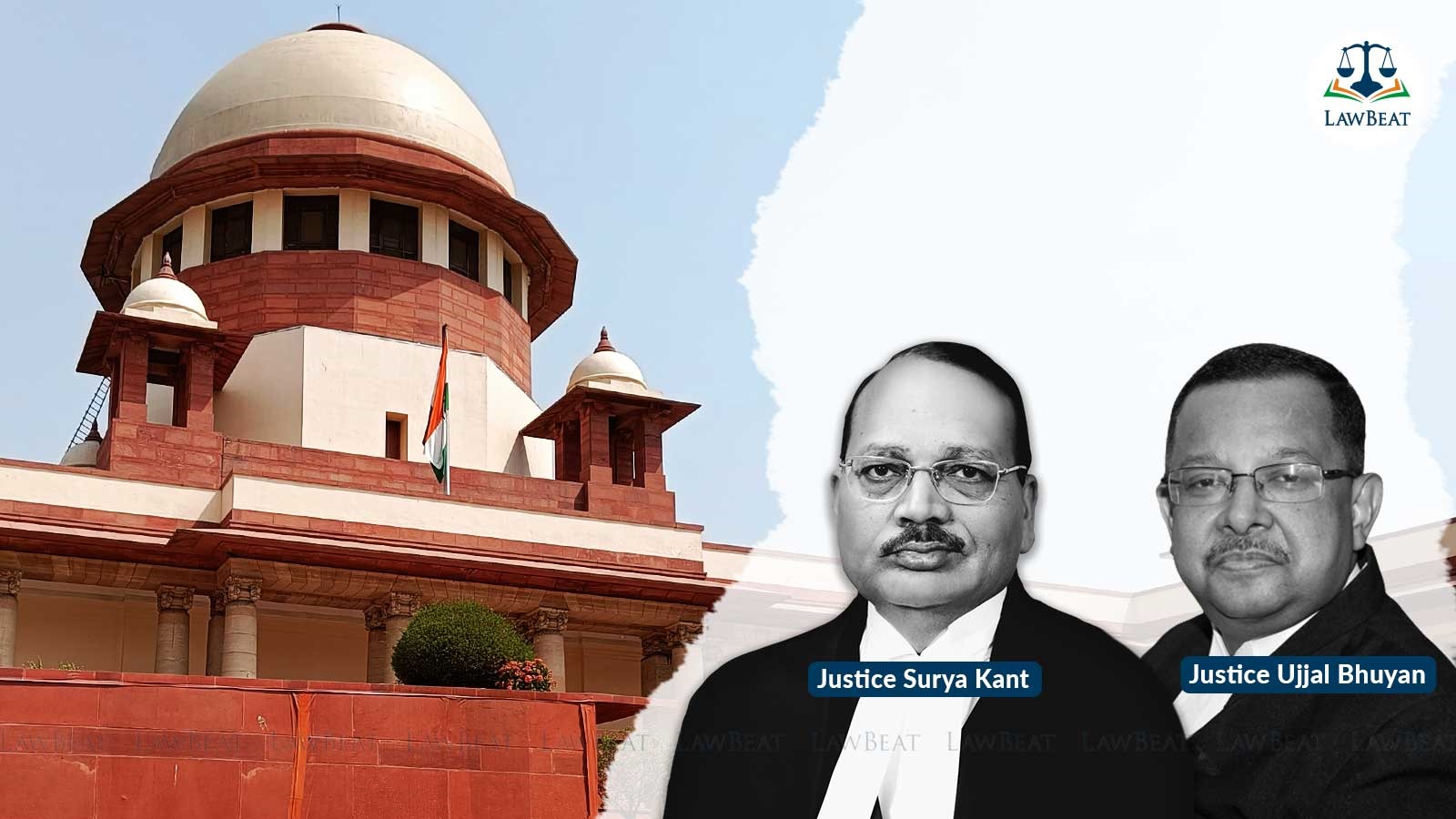Official status of accused can't be ground to deny or grant bail: SC

X
Official positions, regardless of their stature, lose their relevance for the purpose of exercising judicial discretion judiciously, court said
The Supreme Court on December 13 emphasised that while an accused person’s official status should not be grounds for denying bail, it also cannot constitute a special consideration to grant bail if otherwise no case is made out to provide such relief.
In its order allowing bail to former West Bengal Minister Partha Chatterjee, a bench of Justices Surya Kant and Ujjal Bhuyan opined the argument that the appellant’s position as a Minister entitled him to any special consideration did not hold merit from either perspective.
"Impartiality is a prerequisite to the Rule of Law, wherein decisions are based on the factual matrix of the case as opposed to the individual’s position or influence," the bench said.
In this vein, the bench pointed out that the top court has emphatically clarified that while an accused person’s official status should not be grounds for denying bail, it also cannot constitute a special consideration to grant bail if otherwise no case is made out to provide such relief.
"Official positions, regardless of their stature, lose their relevance for the purpose of exercising judicial discretion judiciously," the bench said.
Instead, the court felt that the claim of the appellant had to be examined through the lens of various pleas he had taken to highlight his mitigating circumstances as well as the adverse impact it might have caused in the wake of allegations of playing with the future of thousands of well-merited aspirants and the undue benefits that had accrued to undeserving persons at the cost of these unsuccessful candidates.
"This later perspective underscores the broader societal harm caused by such actions and the erosion of trust in the integrity of public institutions," the bench said.
The statement of the appellant’s close associates recorded under Section 50 of the PMLA assumes enormous significance, as it constituted prima facie evidence linking him to substantial heaps of bribe money recovered from the associate’s residence and company premises, court observed.
Notably, the searches conducted at the residential premises of the appellant’s close aide led to the seizure of cash amounting to Rs 21.90 crores and gold jewellery amounting to Rs 76,97,100. Further search caused recovery of cash amounting to Rs 27.90 crores and gold amounting to Rs. 4.31 crores from the premises connected to companies that de facto were stated to belong to the appellant.
The Enforcement Directorate claimed the seizure and attachment, in this case, stood at a hefty Rs. 151.2 crores, which were the proceeds of crime generated out of criminal activities.
The court pointed out that the statement of the appellant’s close associates recorded under Section 50 of the PMLA assumed enormous significance, as it constituted prima facie evidence linking the appellant to substantial heaps of bribe money recovered from the associate’s residence and company premises.
Additionally, the bench said that the appellant’s prayer for bail must also be juxtaposed against the apprehension of threat to life expressed by the said associate in her statement.
The bench clarified that the question of the evidentiary value of the statement recorded under Section 50 of the PMLA had not been addressed at the present stage so that no prejudice was caused to parties.
Coming back to the issue of bail, the bench said even statutory embargoes on the grant of bail must yield when weighed against the paramount importance of the right to life and liberty under Article 21 of the Constitution, particularly in cases where such incarceration extends over an unreasonably long period without conclusion of trial.
The bench said it was worth reiterating that the court, through a catena of decisions, had consistently emphasised that prolonged incarceration of an accused awaiting trial unjustly deprives them of their right to personal liberty.
The bench pointed out that equally well-established is the principle that the grant of bail must be determined based on the unique circumstances of each case, balanced against settled factors such as the gravity of the offence, the nature of the allegations, likelihood of interference with the ongoing investigation, the possibility of evidence tampering, threat or influence over the material witnesses, the societal impact of such release, and the risk of the accused absconding among others.
In granting relief, the bench pointed out that the court, however, cannot be oblivious to the settled principles that a suspect cannot be held in custody indefinitely and that undertrial incarceration should not amount to punitive detention.
"This court would, nevertheless, ensure that affluent or influential accused do not obstruct the ongoing investigation, tamper with evidence, or influence witnesses, namely, actions that undermine the fundamental doctrine of a fair trial," the bench said.
The Enforcement Agency arrested the appellant on July 23, 2022. The CBI, however, arrested him in two cases on September 16, 2024 and October 1, 2024.
Case Title: Partha Chatterjee Vs Directorate of Enforcement
Next Story
